Location
Our Seattle Location
Northpoint Seattle’s outpatient treatment program is located in beautiful Seattle, Washington, and we work to help the surrounding communities.
- Seattle
2111 N Northgate Way Suite 101,
Seattle, WA 98133, United States
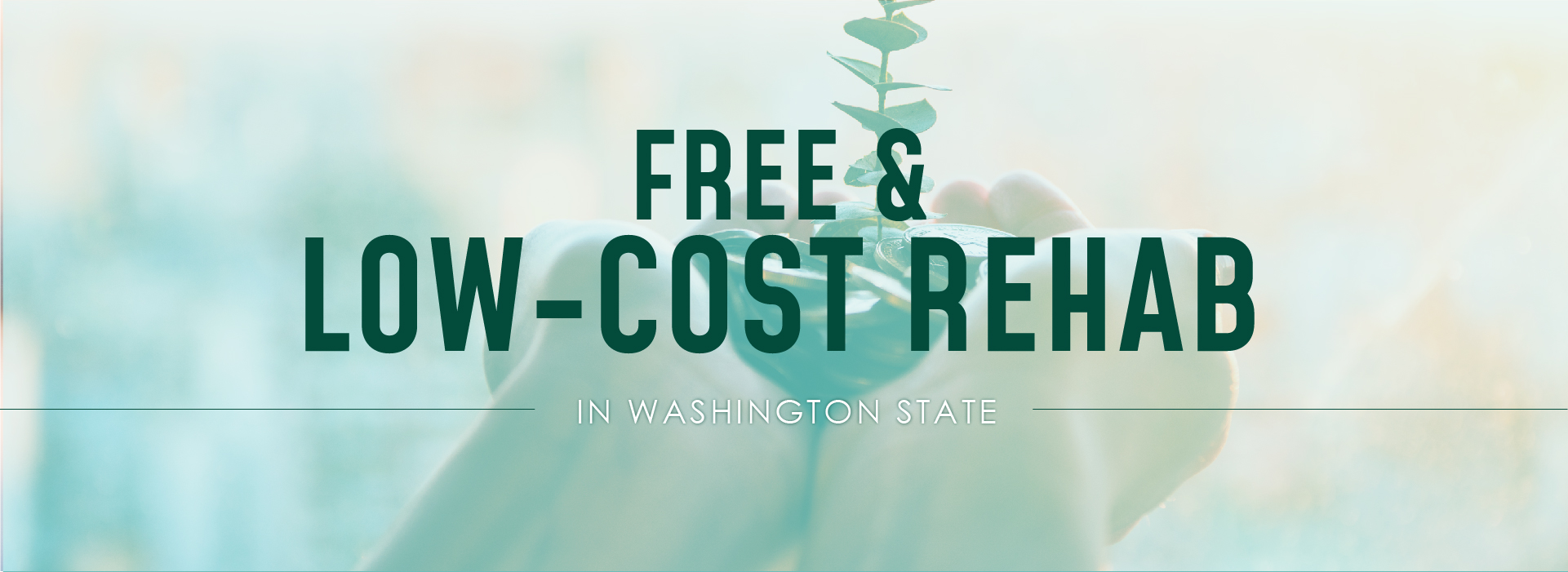
It is difficult to live an everyday life when drugs or alcohol rule over your life. For many addicts, the average day looks like this: find money for drugs, buy them, use them and repeat. At a certain point, this process becomes unsustainable. You know you have a problem but you can’t seem to stop using. It’s time to get help.
If you’re a serious addict, you could be spending hundreds, if not thousands, of dollars on drugs every week. The average heroin addict actually spends around $200 per day getting their fix. Even worse, your habit may have caused to lose your job. If that’s the case, getting treatment seems impossible. After all, rehab costs like $30,000 for a personalized stay, right?
Well, kind of…
There is no arguing that addiction treatment can be quite expensive. Between doctor salaries, housing costs and maintenance fees, the cost of rehab adds up quickly. Fortunately, there are a number of resources available to addicts that can lower or eliminate the cost of treatment.
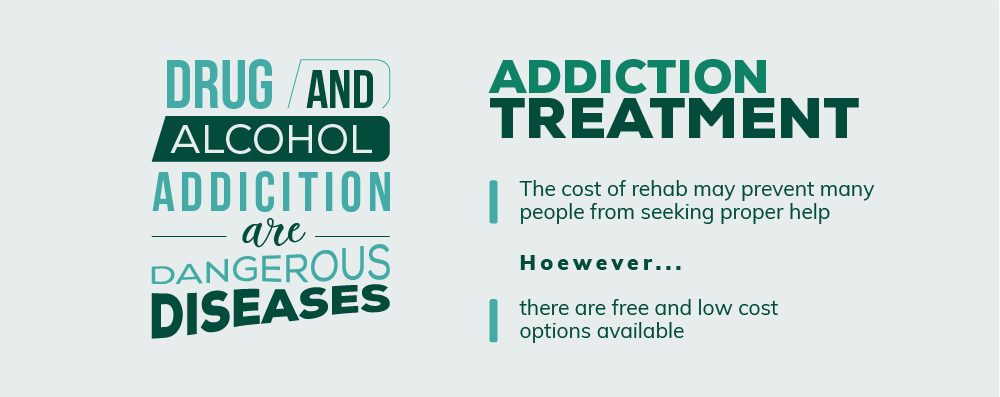
For example, there are a number of low-cost and free drug rehab programs in Washington state. These programs are available to any addict who lacks the financial resources to pay for treatment. While the waitlists may be long, these programs are a great resource for who require treatment for drug addiction or alcoholism but simply can’t afford to pay full price.
Just because you may have lost your job or can’t afford the expense doesn’t mean that you don’t deserve a chance at sobriety. These facilities offer addicts the opportunity to live a sober life free from the claws of addiction.
If you’re wondering how to find a rehab center near you, this is the resource you need. We’ve outlined a directory of all of the free and low-cost addiction treatment center in Washington state. If you’re looking to attend detox or rehab but are worried that you can’t pay for it, this resource should help you get started.
You’ll be on the path to recovery in no time at all.
When you use drugs or alcohol for an extended period of time, you essentially rewire the chemistry in your brain.
Your body becomes physically dependent upon the substances. After having them in your system for so long, your body becomes unable to function without the drug in it, even when the effects are harmful.
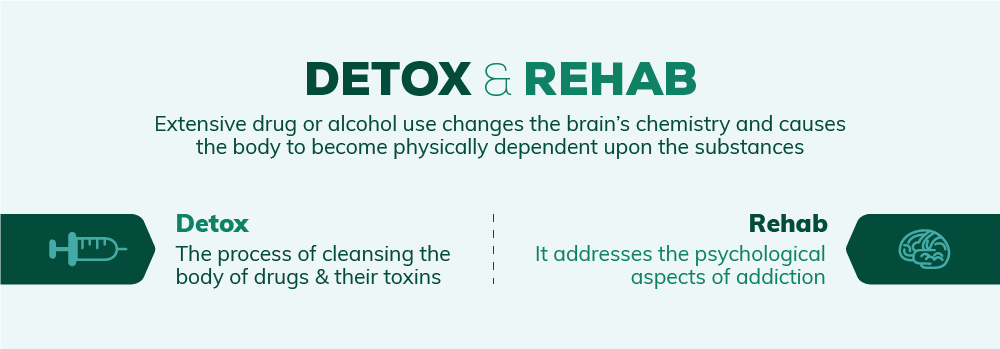
In order to reverse that process, you need to detoxify. Detoxification, or detox for short, is the process through which you empty all of the bad substances from your body. It can be a bit uncomfortable (actually excruciatingly uncomfortable) but a professional detox program can ease up the withdrawal symptoms a little bit. Detox helps you safely separate from your drug of choice and helps manage the withdrawal symptoms you experience.
Once all of the drugs are out of your system, you’re going to feel a lot better. You might be a little bit anxious and experience some cravings, but you’ll be well on your way to a healthier life. However, you still have quite a way to go if you want to stay sober forever.
Rehab is what happens after detox. In rehab, you work to address the psychological aspects of your condition. Rehab programs set you up with therapists and counselors that can help you to understand why you became addicted. They’ll also work with you to develop psychological tools for fighting off cravings in the future.
Rehab comes in a few different forms. Namely, most patients will either attend an inpatient program or an outpatient program. Inpatient, or residential treatment, is where the addict lives on-site at the treatment center for a few weeks while they work to get sober. Outpatient programs, on the other hand, allow the addict to come and go on a daily basis. In an outpatient program, the addict will report to the facility for a few hours every day. Both forms of treatment prove to be extremely useful for drug users in their effort to overcome addiction.
Take an in-depth look at recovery topics with our amazing, up-to-date recovery guides. These guides can help you to determine whether or not you need addiction treatment.
If you’re like most people, you’d probably come close to fainting when you saw the price tag attached to a personalized stay at a rehab facility. After all, professional treatment can cost several thousand dollars per week. But where does all that money go?

If you’re sitting at your computer screaming, “Why can’t rehab just be free?!”, there are a few important things you need to understand. We’ll start by explaining how much it costs to provide addiction treatment.
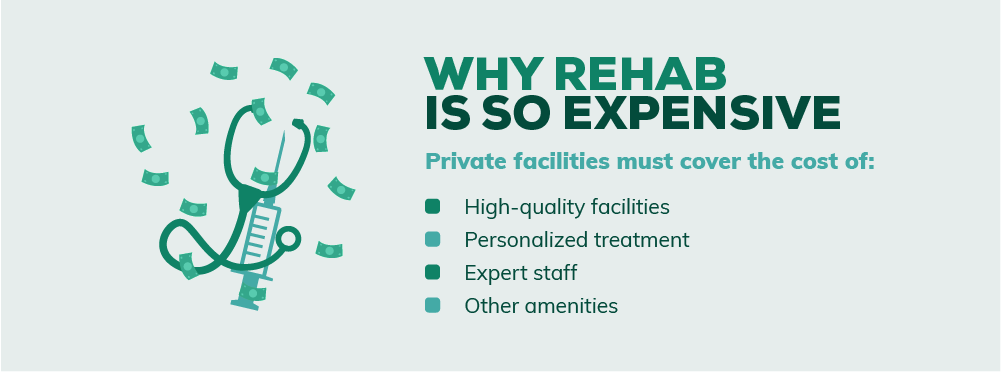
Operating a rehab facility isn’t cheap. When you or your insurance company (more on that later) pays for addiction treatment, the money goes toward several different things. These include:
Free rehab programs are often funded by non-profit organizations and government agencies. However, private facilities pay for these things by charging a fee to their residents.
Yes! Most insurance providers cover at least a portion of the costs associated with drug rehabilitation. If you have health insurance, therefore, it is likely that you don’t need to worry about paying for treatment at all. Your provider will pay the bill, enabling you to go through detox and rehab for free (or for a lower cost, at least).
Want to see if your health insurance company can get you low-cost or free detox and rehab? Call us today to verify your insurance plan.
Although most insurance companies to pay for rehab, we know that all providers are different. Under some circumstances, a provider may not cover the costs associated with addiction treatment. Also, some people just don’t have health insurance so asking a provider to pay for drug rehab just isn’t an option.
Here at Northpoint Seattle, we believe that no addict should go untreated even if they can’t afford it at the moment. When someone is struggling with an addiction to drugs or alcohol, they need help as soon as possible. For this reason, we have several payment plans available to help patients cover the bill for the time being. If you don’t have health insurance, therefore, you can receive free rehab treatment now and pay us back later. This enables drug addicts and alcoholics to get some of the finest addiction treatment available in Washington state for a price that they can afford.
Choosing the right detox and rehab program is a key step in the recovery process. Whether you’re going to a free drug rehab clinic in Seattle, a high-end detox facility in New York City or an addiction treatment center somewhere on the moon, you need to be sure that the program meets your needs. Overcoming an addiction, after all, requires personalized care from the staff and commitment from the addict. If you’re not happy with the treatment that you receive, it’s going to be much more difficult for you to focus on the recovery process.
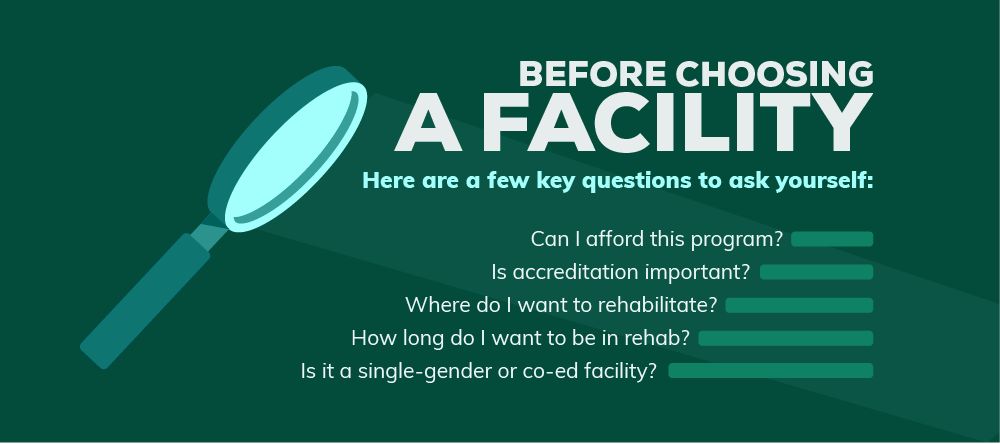
Before you choose a detox or rehab program, there are a few key questions that you should ask yourself:
One of the most important questions you need to consider is the location of the rehab center. If you live on the east coast, for example, you may decide that leaving home to go through detox and rehab is the best option for you. By moving away from your normal environment, you’ll be able to separate yourself from the situations that you’re accustomed to using drugs in. You’ll also have the opportunity to de-stress and focus all of your attention on getting clean.
The length of a rehab program is an important thing to think about. Most addicts attend their treatment program for 4 weeks. Some stay even longer. Unfortunately, many free rehab programs are not quite that long. If 4 weeks isn’t enough time for you to acclimate to living without using drugs, you may require some additional time in the program. If that’s the case for you then you need to make sure that you attend a program that can accommodate you for longer than a month.
Many rehab programs are co-ed, meaning that both men and women attend them. However, we understand that some people would prefer to attend a single-gender program. This is particularly true for inpatient programs where residents live with one another during the rehabilitation period. If an addict has suffered sexual trauma or is uncomfortable living with members of the opposite sex for any reason, therapists will usually recommend that they attend a single-gender treatment program. This is the best way to ensure that the patient feels safe enough to focus on their recovery process.
A lot of people who struggle with drug addiction or alcoholism also suffer from mental illness. They may have an anxiety disorder, depression, or trauma disorder that needs to be treated alongside their addiction. These folks will benefit from attending a program that has doctors who can treat both conditions simultaneously. The patient may require special medications or forms of therapy that aren’t offered at free rehab programs.
Of course, any form of rehab is better than no rehab. If you’ve been diagnosed with co-occurring disorders but can’t afford to pay for treatment, you should attend a zero-cost program and consult the doctors there on what to do.
Rehab facilities are “accredited” in the same way that schools are. A facility receives Joint Commission Behavioral Health accreditation when they can prove that they are capable of providing professional treatment to their patients.
Not all rehab facilities are accredited, however. If it’s important to you that you receive pro-level treatment from doctors that are held accountable for their actions, make sure that you attend a program that has been certified.
As we’ve discussed in this article, not all rehab programs are within financial reach. Some treatment centers are just too expensive. There are a lot of free rehab options out there and plenty of programs that offer financial aid, though, so there is sure to be something that works for you.
No insurance? Don’t want to set up a payment plan? No worries! There are still plenty of ways for you to get the treatment you need.
Whether you live in WA or are seeking treatment here, there are a number of addiction resources available. Free drug rehab programs and detox centers provide addiction treatment services for no money at all.
Remember that choosing your program is one of the most important decisions you’ll make. You should consider the type of treatment that any program offers before you decide to attend. For example, an inpatient rehab experience is a better option for you if you require intensive care.
Wherever you’re located in Washington state, there is sure to be a free rehab program in your area. You may have to travel a few miles away, but there are plenty of options for you to choose from.
These organizations are run by ministries, government agencies, and organizations committed to helping addicts who can’t pay for treatment. They believe that every struggling alcoholic or drug addict deserves a shot at recovery. They run these free centers out of the kindness of their hearts.
So, no, you won’t be required to pay them back afterward. You won’t have bill collectors calling your phone trying to collect reimbursement. Of course, if the facility is a sliding-scale program and you agree to pay some money, they’ll probably hold you to that. However, if you can’t afford to pay for treatment and you let them know that ahead of time, they’ll agree to provide their services at no cost.
Think of low-cost and free detox centers as a glimpse of light in a world that seems like it’s getting worse every day. These programs are run by people who have a burning desire to help addicts like you get back on your feet.
Free rehab centers are intended specifically for those folks who have no way to pay for addiction treatment. If you can afford to pay any portion of your bill, chipping in is the considerate thing to do. As we’ve pointed out, there are plenty of facilities that operate on a sliding-scale basis. So, if you can allocate any part of your budget toward paying for treatment, we recommend that you do so.
Remember, these organizations can only afford to treat so many people at a given time. This is why the waiting lists are so long. You’ll be doing someone else a huge favor by paying for rehab if you can afford it. Think about it this way: if you couldn’t afford treatment, wouldn’t you appreciate if someone who could afford it went elsewhere and let you receive the free treatment?
If you attend a free or low-cost detox center, are you still eligible for free rehab?
Most for-profit treatment centers run their detox facilities and rehab programs on the same campus. This makes it easy for addicts to detoxify and transition directly into rehabilitation afterward. Unfortunately, non-profits are not usually run like this. In Washington state, specifically, the majority of non-profits are operating with very little means. They don’t have state-of-the-art treatment facilities. They’re just doing the best they can to help people get clean as quickly as possible.
There are, however, a few centers that work in tandem with one another. Some of them even provide the same continuum of care that for-profit treatment centers are known for. If you feel like you require such a program, you should call around until you find a program that can accommodate your needs. The counselors in these facilities will be able to answer any questions that you may have about their rehabilitation process.
This depends on the specific organization. Some centers operate strictly on donations from individuals who’ve utilized the facility in the past and remained sober over time. Other programs are funded through assistance from the state. Low-cost rehab programs that operate on a sliding-scale payment model use the money they receive from paying clients to fund their program.
Those who work at these facilities, particularly those who are in recovery themselves, understand that the process isn’t about them. Many of these folks work for very little or no pay in return. They simply want to see drug addicts and alcoholics turn their lives around. They understand the value of rehabilitation and see volunteering as a way to give back to a community that helped them get back on their feet.
Once you’re finally clean and sober for a little while, you may want to help out at a free clinic yourself.
No matter where you attend rehab, you may need continued support after you leave. Fighting alcoholism and drug addiction, after all, is a lifelong process for most of us. The cravings might diminish but the chance of a relapse is always lingering right around the corner.
If you have a history of addiction and have never attended an Alcoholics Anonymous or Narcotics Anonymous meeting, you owe it to yourself to do so. They’re essentially like free rehab programs! Addicts gather to share stories, talk about their experiences and offer support for one another as everyone works to stay sober.
There are absolutely no requirements for membership besides a commitment to sobriety.
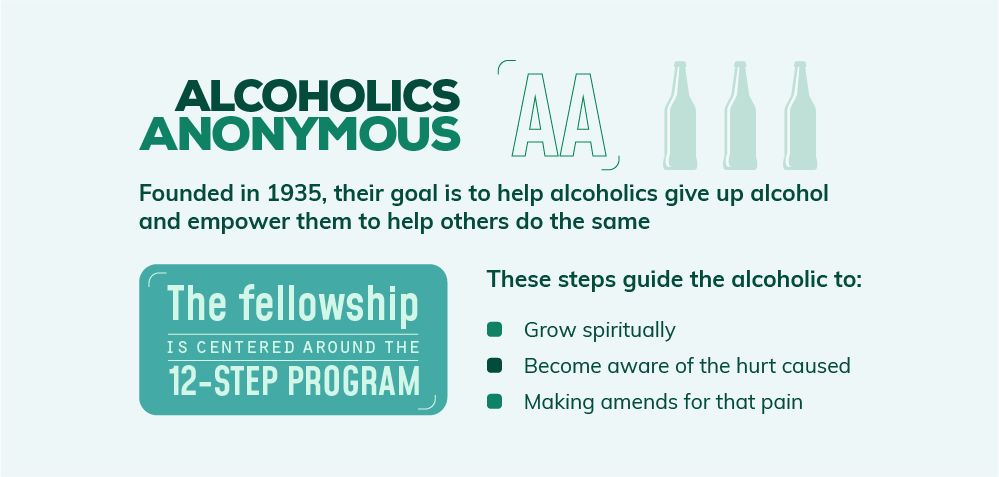
Here are a few Alcoholics Anonymous meetings held every week in the area:
North Seattle, Washington
Morning Rush Group
6512 12th Ave NW
Sundays
7:00 AM
South Seattle, Washington
Seattle Intergroup Office
5507 6th Ave S
South Seattle, WA
Wednesdays
7:00 PM
Bellevue, Washington
Eastside Nooners Group
Alano Club of the Eastside
12302 NE 8th St
Bellevue, WA
Sundays
12:30 PM
Spokane, Washington
Happy Hour Group
Lewis-Clark Alano Club
1435 Elm St
Clarkston, WA
Mondays
5:30 PM
Auburn, Washington
Evergreen South Breakfast Group
Auburn Fraternal Order of Eagles
702 M St SE
Auburn, WA
Sundays
9:00 PM
Bellingham, Washington
Northwest Group
Haskell Business Center
Building C, Unit C-5
1305 Fraser St
Bellingham, WA
Mondays
6:30 AM
Bothell, Washington
12 & 12 Fellowship Group
Country Village
12 & 12 Fellowship Hall
23732 Bothell-Everett Hwy
Bothell, WA
Sundays
4:00 PM
If you’re looking to find more AA meetings in your area, head over to the official Alcoholics Anonymous website.
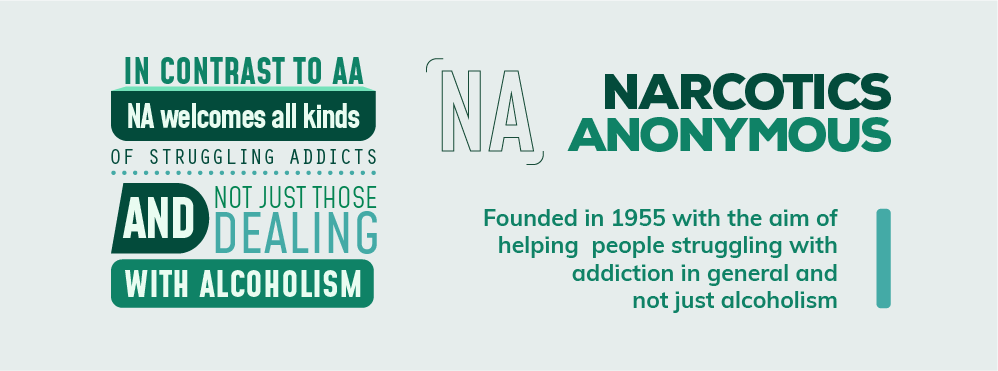
Narcotics Anonymous also holds meetings every day. Whether you’re addicted to opiates, heroin, meth, cocaine or any other drug, these meetings can provide the support you need.
Here are a few meetings held in Washington state on a regular basis:
Seattle, Washington
Basic NA
Our Redeemer's Lutheran Church
2400 NW 85th Street
(Bus 18)
Everyday
6:00 PM
NA Soldiers
Seattle VA Medical Center
1660 S Columbian Way
Building 24, Room 40
Seattle, WA, 98108
(Buses 36, 39, and 60)
Tuesdays
10:00 AM
Spokane, Washington
Our Club
303 W 2nd Ave
Spokane, WA, 99201
Everyday
12:00 PM
Tacoma, Washington
Noon Fly
Recovery Café
1143 Tacoma Ave
Tacoma, WA, 98402
Monday - Thursday
12:00 PM
There are plenty more NA meetings in Washington and other cities around the country. Make sure to check out their website if you’re looking for a meeting closer to you.

The price tag attached to rehab should never deter you from getting the help you need. Even if you can’t afford it, there are plenty of free and low-cost detox and rehab options out there to help you get clean.
Northpoint Seattle is committed to providing affordable and professional treatment to everyone who struggles with addiction. We’ve seen hundreds of patients overcome their addictions and work toward a happier, healthier life. Our facilities are among the highest quality rehab facilities available in Washington state and our staff is expertly trained to provide top-notch care.
If you can’t afford treatment, we’ll work with you and your insurance company to figure out a payment plan that works within your budget. With our help, you’ll be a sober person in no time. If you’d like to discuss detox and rehab options with a member of our staff or verify your insurance with our financial department, please give us a call. We’re excited to help you get on the road to recovery.

Our admissions coordinators are here to help you get started with treatment the right way. They'll verify your health insurance, help set up travel arrangements, and make sure your transition into treatment is smooth and hassle-free.
[DirectNumber] Contact Us